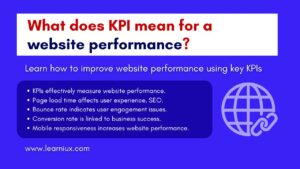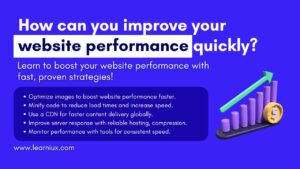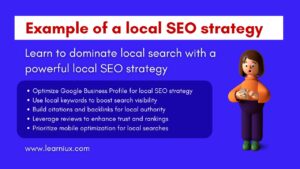E-commerce has transformed the way people shop, providing convenience and variety at the click of a button. With millions of online stores competing for attention, standing out in this crowded digital marketplace is no easy task. Consumers rely heavily on search engines like Google to find products, compare prices, and make purchasing decisions. This is where SEO marketing services come into play. But can they really make a difference for e-commerce websites? The answer lies in understanding how SEO works, its benefits, and practical strategies that can increase online store visibility, traffic, and sales. This article takes a deep dive into the role of SEO services in driving e-commerce success, exploring their mechanisms, challenges, and actionable approaches to help businesses thrive in competitive environments.
Search engine optimization, or SEO, is the process of getting a website to rank high on search engine results pages. For e-commerce websites, this means ensuring that product pages, category pages, and other content appear prominently when potential customers search for relevant terms. Unlike physical stores with foot traffic, online businesses rely on search engines to attract visitors. Without visibility on platforms like Google, even the best-designed e-commerce website can struggle to attract customers. SEO fills this gap by enabling users to actively search for the products you offer. It’s not just about ranking high, it’s about connecting with the right audience at the right time.
The most important benefit of SEO for e-commerce is its ability to drive organic traffic. Organic traffic is visitors who find your website through unpaid search results. Unlike paid advertising, which stops generating clicks as soon as your budget runs out, SEO provides a sustainable source of traffic. When a product page ranks well for keywords like “best wireless headphones,” it can attract consistent visitors over time. This is especially valuable for e-commerce businesses, where high traffic often correlates with high sales. Professional SEO services use advanced tools to identify high-intent keywords – words that indicate a user is ready to make a purchase, such as “buy running shoes online” or “affordable skincare products”. By optimizing product descriptions, titles and meta tags with these keywords, SEO experts ensure that your website attracts relevant visitors who are more likely to convert into customers.
In addition to increasing traffic, SEO improves the overall user experience on your website. Search engines prefer sites that are fast, mobile-friendly and easy to navigate. For e-commerce platforms, this is important, as customers expect seamless browsing and fast load times. SEO services go beyond keyword optimization to address technical aspects such as site speed, broken links and mobile responsiveness. A slow website or a difficult-to-navigate website can lead to high bounce rates, where visitors leave without making a purchase. By addressing these issues, SEO not only boosts your rankings but also engages visitors, increasing the likelihood of closing a sale. For example, optimizing images to load faster or streamlining the checkout process can make a significant difference in user satisfaction and conversions.
Another compelling reason to invest in SEO for e-commerce is cost-effectiveness. Paid advertising, such as Google Ads or social media campaigns, can be expensive, especially for small businesses with limited budgets. These ads produce quick results, but they require ongoing investment. SEO, on the other hand, offers long-term benefits. Once a page is optimized and ranks well, it can continue to drive traffic without ongoing costs. This makes SEO an attractive option for e-commerce businesses looking to maximize their marketing budget. The initial investment in SEO services may seem significant, but the return on investment in terms of consistent traffic and sales often outweighs the cost over time.
SEO also allows e-commerce businesses to target specific customer segments. Unlike broad marketing campaigns, SEO focuses on users who are actively searching for the products or services you offer. For example, a store that sells eco-friendly clothing might optimize for specific keywords like “sustainable fashion” or “organic cotton dresses.” These terms attract customers who are specifically interested in eco-conscious products, which increases the likelihood of conversion. SEO services use data-driven tools to analyze search trends and consumer behavior, ensuring that your website is targeting the right audience. This precise targeting is especially valuable in e-commerce, where understanding customer intent can make or break a sale.
Building brand credibility is another important benefit of SEO. Websites that appear on the first page of search results are often perceived as more trustworthy by customers. This is especially important for e-commerce businesses, where trust plays a significant role in purchasing decisions. SEO services help establish your brand as an authority in your industry by optimizing content, gaining backlinks from reputable sites, and ensuring professional website design. For example, a well-optimized e-commerce store that sells fitness equipment can rank for terms like “best home gym equipment,” positioning itself as a great resource for fitness enthusiasts. Over time, this builds customer loyalty and encourages repeat purchases.
So, how exactly do SEO marketing services help e-commerce websites achieve these benefits? The process begins with extensive keyword research. SEO experts analyze search volume, competition, and user intent to identify the most effective keywords for your business. These keywords are then strategically incorporated into product titles, descriptions, and other on-page elements. For example, a store that sells handmade jewelry can target keywords like “handmade silver necklaces” or “unique gemstone earrings.” By aligning content with what customers are searching for, SEO services ensure that your products are visible to the right audience.
Technical SEO is another important component. E-commerce websites often have complex structures, with thousands of product pages, categories, and filters. Technical issues like duplicate content, broken links, or slow loading times can hinder search engine performance. SEO services conduct in-depth audits to identify and fix these issues. They can optimize site speed by compressing images, implement structured data to enable rich snippets (such as star ratings in search results), or ensure that the site is fully accessible on mobile devices. These technical improvements make it easier for search engines to crawl and index your site, leading to better rankings and a smoother user experience.
Content marketing is a powerful tool in the SEO arsenal. For e-commerce websites, content goes beyond product descriptions. SEO services often include creating blog posts, buying guides, and product comparisons to attract and engage customers. For example, a blog post titled “How to Choose the Perfect Laptop for Work” can drive traffic to an electronics store while providing valuable information to readers. This content not only improves SEO by including relevant keywords, but it can also position your brand as a useful resource. Customers who find value in your content are more likely to trust and purchase from your brand.
Link building is another essential strategy. Backlinks from authoritative websites signal to search engines that your site is trustworthy and relevant. SEO services use ethical techniques such as guest posting, influencer collaborations, or partnering with industry blogs to gain high-quality backlinks. For example, a backlink from a popular fashion blog can increase the authority of an e-commerce store that sells clothing. These links not only improve rankings, but also drive referral traffic from other websites, which increases your reach.
For e-commerce businesses with physical stores or local delivery options, local SEO is a game-changer. Optimizing for location-based keywords like “flower delivery in Delhi” or “electronics store near me” can attract customers from nearby locations and increase foot traffic. SEO services can optimize your Google Business Profile, create location-specific landing pages, and ensure consistent business information in online directories. This is especially valuable for businesses operating in specific regions, as it connects them with customers in their area.
Despite its benefits, SEO for e-commerce is not without its challenges. Managing thousands of product pages can be overwhelming, especially for large online stores. Duplicate content, where the same product descriptions appear on multiple pages, can hurt rankings. Additionally, search engine algorithms are constantly evolving, requiring businesses to regularly adapt their strategies. SEO services address these challenges by staying up to date with algorithm changes and using advanced tools to manage large-scale optimization. They also implement strategies to avoid duplicate content, such as canonical tags or unique product descriptions.
To maximize SEO impact, e-commerce businesses should adopt several key strategies. Optimizing product pages is a top priority. Each page should have a descriptive, keyword-rich title and a unique description that highlights the product’s features and benefits. High-quality images and videos are also important, as they increase user engagement and improve rankings. Including customer reviews on product pages can further boost trust and SEO performance, as search engines value user-generated content.
Long-tail keywords are another powerful tool. These are longer, more specific phrases, such as “best wireless earbuds for running” or “affordable vegan leather bags.” Although they are less searched than broad keywords, they face less competition and attract users with higher purchase intent. SEO services can help identify and target these phrases, driving qualified traffic to your site.
Site navigation is just as important. A clear, intuitive structure with well-organized categories and filters makes it easy for customers to find products. It also helps search engines understand your site’s hierarchy, improving crawlability and indexing. For example, a clothing store might organize products into categories like “Men’s Clothing,” “Women’s Clothing,” and “Accessories,” with subcategories for specific items like “Shirts” or “Dresses.”
Mobile optimization is a must-have in today’s e-commerce landscape. With an increasing number of customers shopping on smartphones, a mobile-friendly website is essential. SEO services ensure that your site is responsive, has fast load times, and is easy to navigate across all devices. This not only improves the user experience but also aligns with search engines’ mobile-first indexing approach, where the mobile version of a site is prioritized for ranking.
Monitoring and analyzing performance is crucial for long-term SEO success. Tools like Google Analytics and Search Console provide insights into traffic, rankings, and conversions. SEO services use these tools to track performance, identify areas for improvement, and refine strategies. For example, if a product page isn’t ranking well, they can adjust keywords, improve content, or fix technical issues.
Real-world examples highlight the power of SEO for e-commerce. Giants like Amazon and Flipkart dominate search results by optimizing millions of product pages and investing heavily in content marketing. Their success shows that SEO is scalable, from small startups to global brands. Even small businesses can compete by targeting specific markets. For example, a shop that sells handmade candles can rank for terms like “artisanal soy candles” with the help of professional SEO services, creating a niche in a competitive market.
Choosing the right SEO service is key to success. Not all providers are created equal, and e-commerce businesses should look for agencies that have experience in their industry. A proven track record backed by case studies or client testimonials is a good indicator of credibility. Transparency is also important – reputable services provide clear reporting on policies and results. Finally, ethical, white-hat SEO practices are essential to avoid penalties from search engines. Black-hat tactics like keyword stuffing or buying low-quality backlinks may provide short-term gains but can harm your site in the long run.
SEO marketing services are a powerful tool for e-commerce websites, offering a variety of benefits that drive growth. They attract targeted traffic, enhance user experience, and build brand credibility in a cost-effective way. By leveraging strategies like keyword optimization, technical SEO, content marketing, link building, and local SEO, businesses can compete in a crowded marketplace and connect with the right customers. While challenges exist, such as managing a large product catalog and staying up to date with algorithm changes, professional SEO services provide the expertise and tools to overcome them. Whether you’re a small startup or an established brand, investing in SEO can unlock the full potential of your online store. By starting with a solid SEO strategy and continually refining it, e-commerce businesses can achieve sustainable success and thrive in the digital marketplace.





















































